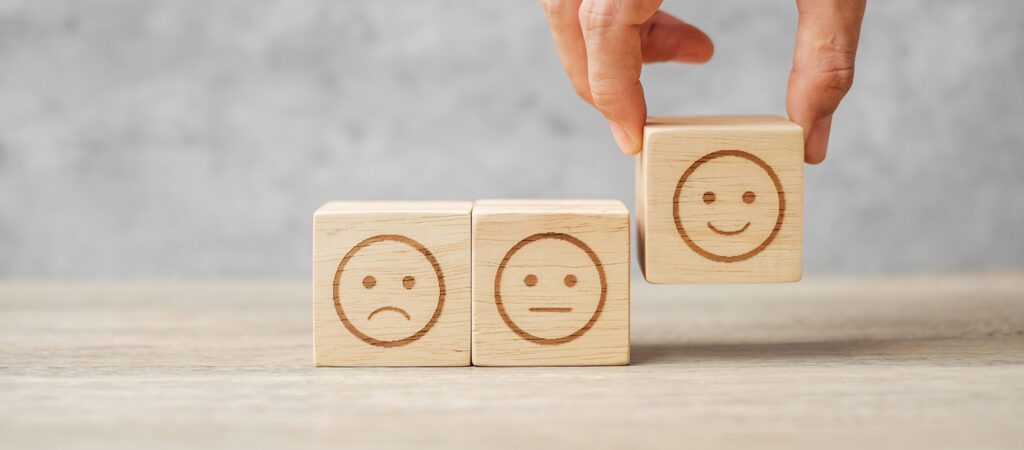Don’t ignore your mental health red alerts!

Mental health is like physical health: Your “normal” is unique, so track changes and warning signs to know when to seek professional help.
The signs include feeling helpless or hopeless, thinking about harming yourself or others and using substances more than you want, says licensed psychotherapist Daniel Epstein, who has a private practice, The Dialogue Co., and works with the Berman Center in Dunwoody.
Your risk rises if you’ve recently experienced a trauma such as a car accident or lost a loved one, especially by suicide, he says. But one person could shrug off something that causes another post-traumatic stress.
Physically healthy people who avoid social interactions should seek help, says Dr. Toby Goldsmith, a psychiatrist at the Emory Brain Health Center in Brookhaven, who directs the Emory Women’s Mental Health Program. “It’s important to attempt to maintain some level of normalcy.”
Think of red, yellow and green, Epstein says:
Red is a crisis. You’re not functioning, and someone’s safety is at risk. The physical equivalent is a stroke or heart attack.
Yellow is a nonemergency ailment, such as feeling depressed or anxious while functioning. It’s like having the flu and deciding whether to see a doctor.
Green is a feeling of normalcy, though you might not be entirely happy, just as you might have some manageable aches when you arise each morning.

Just as a physical load can exhaust you over time, anxiety or depression can gradually change from yellow to red, Epstein says. “When is it time to reach out for mental health help?” Goldsmith says. “When whatever’s happening is adversely impacting your relationships or your social and occupational functioning.”
Whether physical or mental, Epstein says, “it’s health care,” which involves wellness. He has developed Vessel Wellness, a program of online group sessions designed to build mental wellness skills.
Women face particular risks. At puberty, the depression rate jumps for girls compared with boys, Goldsmith says, and perimenopause, the decade before menopause, is fraught with emotional and psychiatric symptoms.
Through suicides and drug overdoses, mental health problems put Georgia 49th in maternal mortality rate, measured through one year after birth, Goldsmith says. In response, she directs PEACE for Moms, which offers psychiatric consultations to health care providers treating perinatal patients. About 80% of mothers experience the postpartum blues for up to two weeks after delivery, Goldsmith says. “They’re moody. They cry easily. They may not sleep as well.”
Risk factors that can turn the blues into something more serious include a history of postpartum or major depression, recent stressful events, the birth of twins or more, and problems with money, relationships or breastfeeding. Younger and first-time mothers also are at higher risk.
Goldsmith looks for signs that maternal anxiety is preventing a return to normalcy, including a fear of being alone with the baby and an inability to sleep while the baby does.
Infertility also affects mental health, so Goldsmith spoke to the Jewish Fertility Foundation’s Be Fruitful and Multiply podcast about medications and other resources. “It’s really sad that people are told to buck up when there’s treatment available,” she says.
For any mental health concerns, ask your physician for a referral to get evaluated. And if you don’t feel safe, Epstein says, “Call a crisis hotline. Tell someone that you love, ‘Hey, help me with this.’ Do not do this alone.”
BERMAN CENTER
770.336.7444
bermancenteratl.com
@thebermancenter
THE DIALOGUE CO.
954.228.5101
thedialogueco.com
EMORY BRAIN HEALTH CENTER
404.778.5526
emoryhealthcare.org/centers-programs/brain-health-center
@emoryhealthcare
GEORGIA CRISIS AND ACCESS LINE
800.715.4225
PEACE FOR MOMS
470.977.3223
peace4momsga.org
@peace4momsga
SUICIDE AND CRISIS LIFELINE
988
988lifeline.org
VESSEL WELLNESS
855.967.8775
vesselwellness.com
@vesselwellness_
Jack-of-all-trades writer covering almost anything but beauty and fashion at Simply Buckhead; fond of flamingos and sloths.












